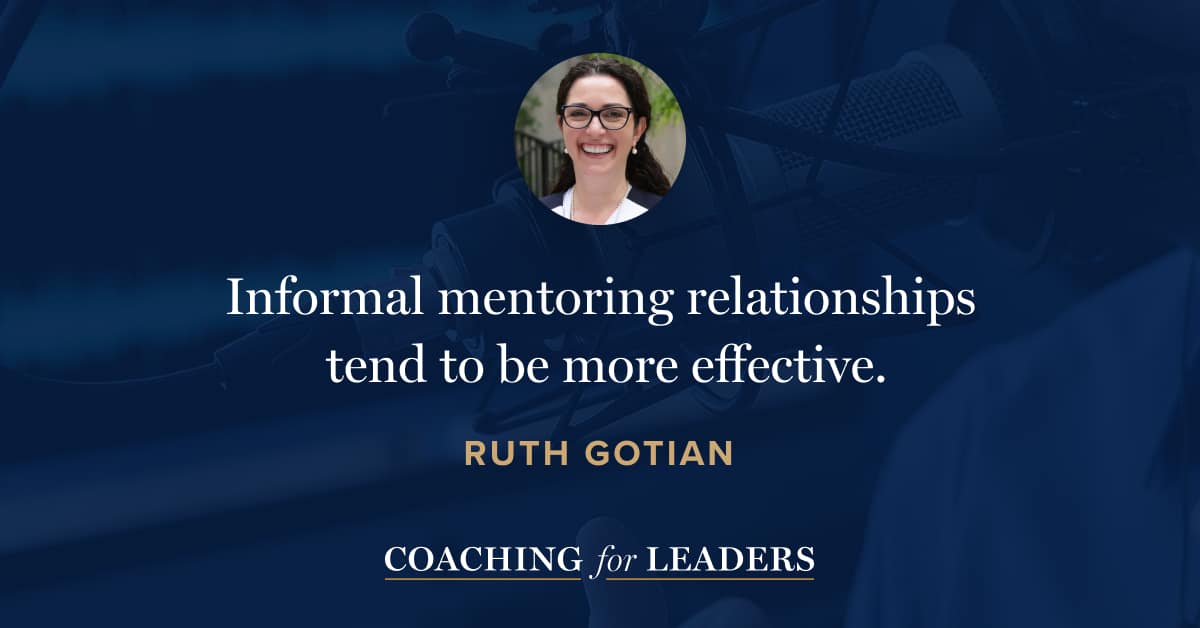Ruth Gotian: The Financial Times Guide to Mentoring
Ruth Gotian is the Chief Learning Officer and Associate Professor of Education in Anaesthesiology at Weill Cornell Medicine. She has been hailed by Nature and The Wall Street Journal as an expert in mentorship and leadership development. Thinkers50 has ranked her the #1 emerging management thinker in the world and she's a top LinkedIn voice in mentoring. Ruth is the author of The Success Factor and now along with Andy Lopata, The Financial Times Guide to Mentoring*.
We’ve all heard about the benefits of mentoring. In addition to receiving mentoring, great leaders give back by providing it to others. In this episode, Ruth and I discuss what the research shows that the best mentors do well.
Key Points
- Effective mentors use a combination of skills in coaching, sponsorship, role-modeling, and mentoring to support the situation.
- Informal mentoring tends to be more effective than formal pairings. 61% of mentoring relationships develop organically.
- Open up your network to your mentee. It’s an essential way to support their growth — and yours.
- Park your ego at the door. Instead, allow your mentee to shine. With their permission, amplify their achievements.
- Take the role of “sophisticated barbarian.” Approach mentee situations with knowledge and experience, but with distance and objectivity of their other, daily interactions.
- Document the challenges, accomplishments, and next steps during mentoring. This helps your mentee recognize accomplishments and grow their confidence.
Resources Mentioned
- The Financial Times Guide to Mentoring by Ruth Gotian and Andy Lopata
Interview Notes
Download my interview notes in PDF format (free membership required).
Related Episodes
- How to Build a Network While Still Doing Everything Else, with Ruth Gotian (episode 591)
- The Art of Mentoring Well, with Robert Lefkowitz (episode 599)
- The Way to Get Noticed by Key Stakeholders, with Daphne E. Jones (episode 614)
Discover More
Activate your free membership for full access to the entire library of interviews since 2011, searchable by topic. To accelerate your learning, uncover more inside Coaching for Leaders Plus.





